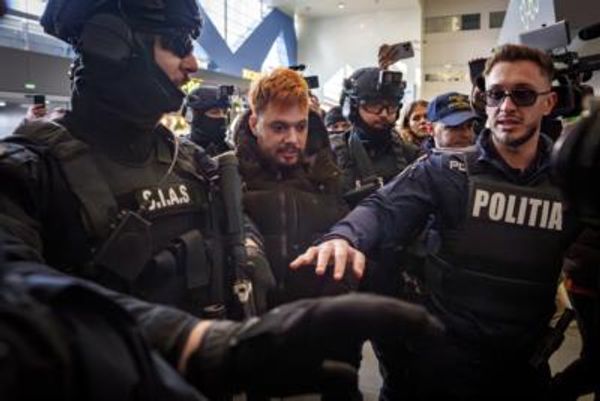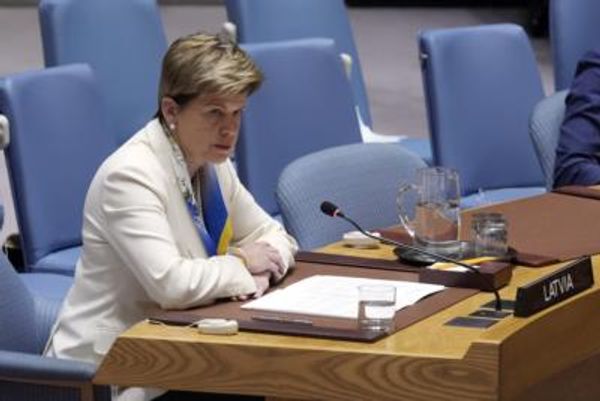Hopes, dreams, and disappointment. Five women aged between 24 and 41 share their stories of egg freezing.
Anna, 24
Anna Maxwell is about to start the process of freezing her eggs, against her doctor's advice.
The 24-year-old medical student decided that the cost — between $7,000 and $8,000, not including the annual storage fee of $500 – is worth it for her.
"The doctor I saw was baffled, really," Anna told 7.30.
"[The doctor thought,] 'Why would you do this at 24, with no medical issues, no family history of infertility, no reason to be worried about premature menopause?'
"[The doctor] was so honest about the fact that it's not something that I would need to do that I had to clarify with her that she would be willing to do it."
The way Anna sees it, she is putting the money towards a dream that is very important to her, the same way her friends are saving up for houses or holidays.
"I don't think I am going to regret spending this money because I hope and trust that future me will think, 'You were just doing something to try and secure what was important to you.'
"And if I don't need them, I feel like I've already won. If I don't need them, that means I have had a child."
Anna knows the process is no guarantee of a baby in the future.
How young is too young, and how old is too old?
Anna's doctor, fertility specialist Devora Lieberman, told the ABC's 7.30 that finding the right age for elective egg freezing was about striking the right balance, and it depended on a woman's personal circumstances.
"If you come to freeze your eggs when you're too old — say, when you are over 37, 38 — the egg quality will not be as good as it once was," Dr Lieberman said.
"And many women may actually be freezing their infertility.
"On the flip side of that, if you freeze your eggs when you are very young, in your mid-20s for example, you have a lot more time in which to partner and have that family without needing the technology, and in addition you will have that many more years of storage fees to pay.
"I think the right time is probably somewhere between 32 and 35.
"But if a woman wants to freeze her eggs, I'm not going to deny her the ability to do that."
Perth-based gynaecologist and fertility specialist Tamara Hunter told 7.30 women under 30 could also be at higher risk of severe ovarian hyperstimulation syndrome (OHSS).
"With hyperstimulation of the ovaries, there is a risk, albeit small, of ovarian hyperstimulation syndrome," Dr Hunter said.
"If a young woman has a very high egg count, and that's what we expect from young women, their chances of developing ovarian hyperstimulation syndrome [are higher].
"Which … can potentially be a life-threatening complication of what is essentially an elective procedure."
Depending on a woman's age, between 15 and 40 eggs can be needed for freezing to give a woman a good chance of having a baby in the future.
That means that a younger woman may only require one egg retrieval cycle, while an older woman may have to endure multiple, potentially making it a more costly and emotionally and physically taxing experience.
Jessica, 32
Jessica Sedunary is a professional AFLW football player and is not ready to give up her career any time soon.
Because she knows she wants a family one day, she recently spent $11,500 to freeze 10 of her eggs.
"I had my heart set on getting 15 eggs because that is the number I was told would give me an 80 per cent success rate of having one child in the future, and I fell short at 10," she said.
"I've heard 10 is still a really good number and something I'm thankful for getting. But obviously having to make a decision on whether I decide to do this again and spend another $11,500, and whether I can afford to do that right now, is a little bit heartbreaking."
Jessica believes the AFL and other sporting corporations that employ female athletes should help cover the costs of egg freezing.
"[Female athletes] sacrifice so much and it's just another thing we are sacrificing, and I think it's a big one," she said.
"It's something that I would hope that the AFL would look really closely at in the future."
Molly, 35
Sydneysider Molly Benjamin, founder of the financial literacy platform the Ladies Finance Club, froze her eggs last week.
Because Molly has endometriosis, she qualified for a Medicare rebate and paid about $5,000 for the procedure all up.
"This is a way that I can have control over my future and buy myself some time to find the right person," she said.
Molly said the process was seamless, her recovery from the surgery was a breeze, and she now had 13 eggs on ice.
She said the process was financially out of reach for most women, which was part of the reason why she had devoted a section of her new book, Girls Just Wanna Have Funds, to saving for egg freezing.
"A lot of Aussies don't have an extra $500 sitting around, let alone an extra $5,000 or $10,000, so there does come a level of privilege to even be able to afford to do this," she said.
Alice, 36
Alice Boshell spent $15,000 on the process and ended up with five eggs on ice.
She said she found the process to be more difficult and disappointing than she had anticipated.
"They thought they were going to get a lot more eggs but they retrieved nine and only five of them were viable," she said.
"I just didn't want to go into my 40s and regret that I hadn't gone through it.
"[But] If I use the eggs in my 40s, that does not guarantee that I will get a baby.
"There is a lot of conversation around taking control and empowerment but, for me, it didn't make me any stronger about the situation.
"It's something I wish I didn't have to do. I guess it's just the way things are in society now. People are settling down a lot later.
"And I think, looking back, it didn't change anything for me."
Alice also got quite sick from the hormone medication and had to stop taking it at one point, which dragged out the process.
She was sick with headaches, nausea, vomiting and diarrhoea.
"Now that I've been through it, I can understand why it's such a big deal," she said.
"Because of the risks that are involved and because there is no guarantee at the end of how many eggs you are going to retrieve or even that there will be a live baby at the end of the process."
"Going through the process I found out that I seem quite fertile, so I feel [I can] rest assured.
"Moving into the future, I probably would not do it again."
Amy, 41
Amy froze her eggs when she was 38 after a blood test a couple of years earlier revealed she had a low ovarian reserve.
"The process was pretty full on," she said.
"I had to do six rounds of egg freezing, and it was a lot on the body and also stressful. Daily needles and lots of blood tests."
Amy said the process, which allowed her to freeze 10 eggs, cost her $28,000 with a Medicare rebate, and she withdrew about $20,000 from her superannuation to pay for it.
Within a year of freezing her eggs, she met her now partner and a year ago they had their son Zachary using one of Amy's frozen eggs.
She said she felt lucky the financial, physical and emotional outlay had paid off.
"Having Zachary has brought so much joy to my life and I never thought that I would be able to have this baby," she said.
"A lot of family and friends know how much I went through to have him, so I think that is why it is extra special."
Watch 7.30, Mondays to Thursdays at 7:30pm on ABC iview and ABC TV







